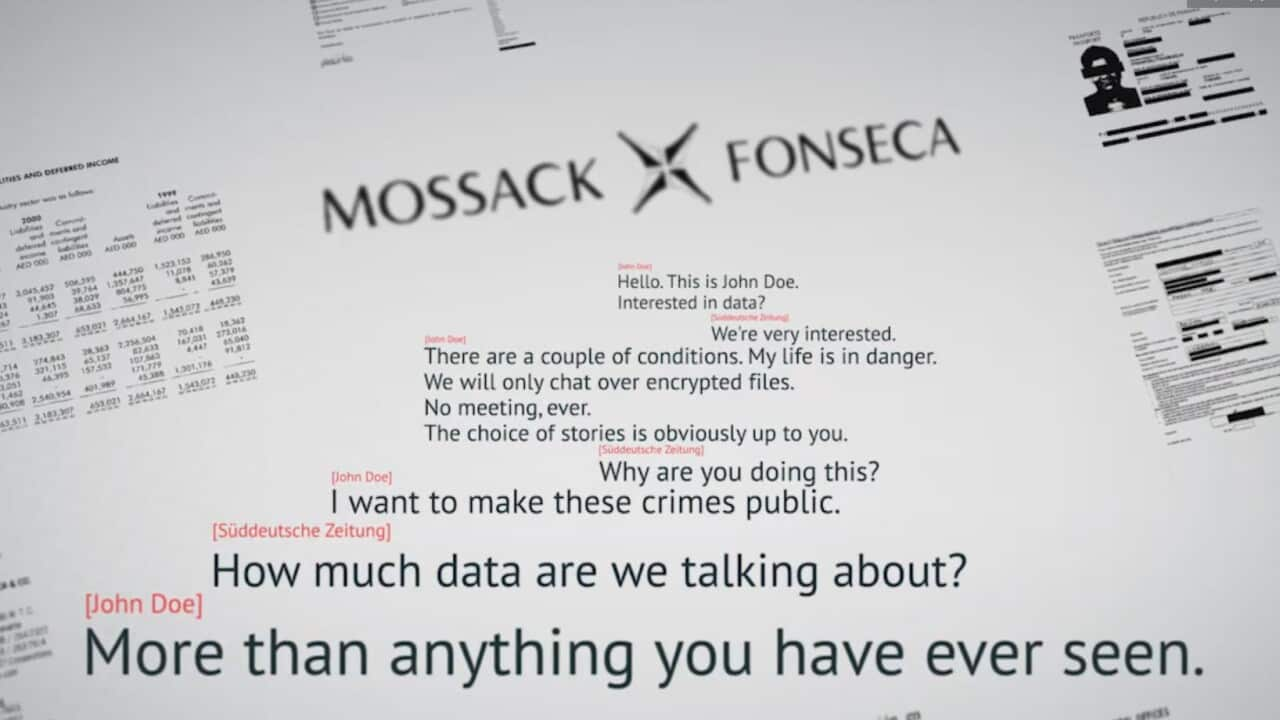Malcolm Turnbull's appearance on the list of world leaders linked to the Panama Papers could help the global push to crack down on tax avoidance, experts say.
The prime minister insists there was no impropriety around his association with a British Virgin Islands company set up by Mossack Fonseca, the secretive law firm at the heart of the Panama Papers scandal.
But experts say that while he may not have done anything illegal, simply being linked to the Panama Papers adds to the case for reforming laws dealing with tax dodgers.
Tax Justice Network spokesman Mark Zirnsak urged Mr Turnbull to expand the government's recent measures to tackle tax avoidance by multinationals and make it illegal for people to conceal their relationships with offshore shell companies.
"That's the mischief in this is the secrecy and concealed ownership," he told AAP.
"I think he needs to follow through on his promise to fix this."
Justice Minister Michael Keenan is in London to attend a major international anti-corruption summit hosted by British Prime Minister David Cameron.
Mr Keenan is expected to announce plans for Australia to look at options for a public register that would identify the owners behind offshore shell companies.
The Australian Financial Review reported that the Panama Papers show Mr Turnbull was a director of Australian-based Star Mining and its British Virgin Islands subsidiary, Star Technology Services, which was set up to hold a stake in a Siberian gold prospect in the early 1990s.
Mr Turnbull told reporters the company was a wholly owned subsidiary of a publicly listed Australian company and had not made any profits.
He is the latest world leader to be named in the Panama Papers, which also have links to Mr Cameron, Russian President Vladimir Putin, the king of Saudi Arabia and Iceland's former prime minister.
University of Melbourne professor of criminology Fiona Haines says while Mr Turnbull and other high-profile names caught up in the scandal may not have done anything illegal, they have effectively been publicly shamed simply by being connected to the Panama Papers.
"Shaming is a very important part of reforming laws in an attempt to try to rectify a situation or make it better," Prof Haines told AAP.
"Things that are legal can be viewed as being dodgy. And although on the legal side there may be nothing to see here, the politics of this is such that a moral argument can be made (for reform)."
Prof Haines said the Panama Papers scandal had highlighted the complex paradox in tax laws, which ban tax evasion but allow people to minimise their tax.
"It signifies to me that there's a central tension at the heart of getting people to pay their fair share of tax," she said.

